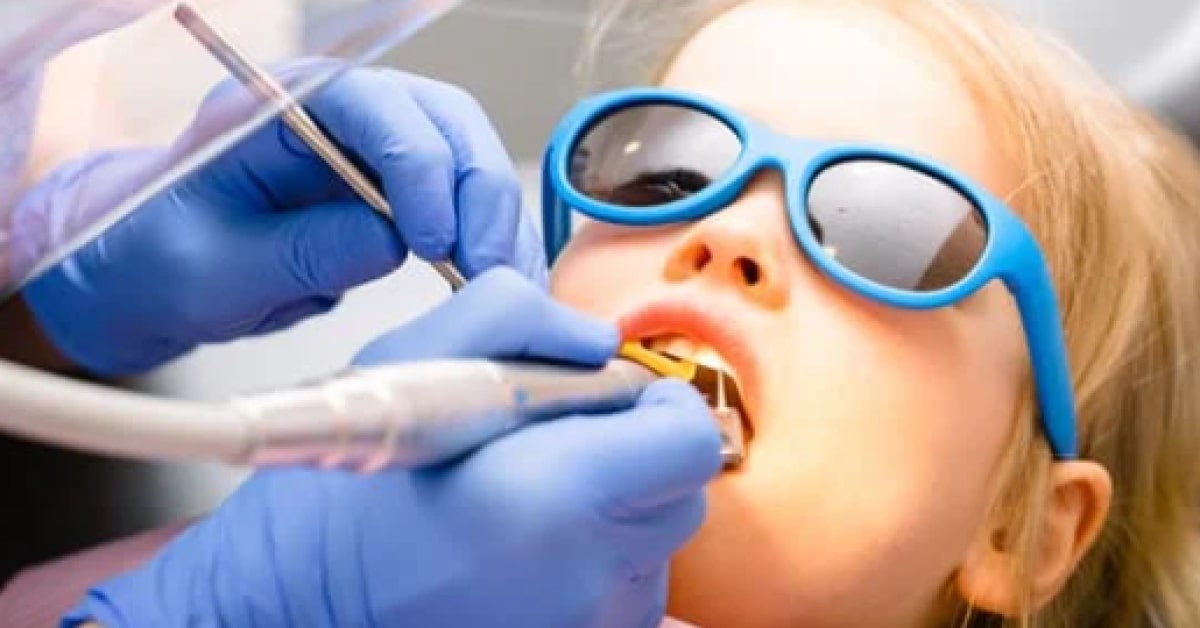Blog
July 06, 2023 • 10 mins readBreak the Habit: 7 Common Causes of Tooth Grinding and Clenching and How to Address Them
Are you grinding or clenching your teeth? Learn about the 7 common causes of tooth grinding and clenching and how to address them. Get tips to protect your teeth.
Author
Devdent

In this Article
Do you ever wake up with an unexplained headache or sore jaw? What about tooth pain that you can’t explain? It could be due to tooth grinding and clenching, also known as bruxism. This habit can have a negative impact on your dental health and overall well-being if left untreated.
Many people may not even realize that they have this condition as it often happens during sleep or while they are under stress. However, it is essential to recognize the signs of tooth grinding and jaw clenching and seek treatment from a dentist as soon as possible.
One of the most significant impacts of bruxism is damage to your teeth. The constant grinding and clenching can wear down the enamel on your teeth, leading to sensitivity, tooth decay, and even tooth loss. Additionally, bruxism can cause headaches, earaches, and jaw pain, making it difficult to eat, talk, and even sleep.
Not only does tooth grinding and jaw clenching cause dental problems, they can also impact your mental health. The constant tension and stress on your jaw and facial muscles can lead to anxiety, depression, and other mood disorders. Moreover, the lack of quality sleep due to bruxism can lead to fatigue, irritability, and difficulty concentrating, which can impact your work and personal life.
If tooth grinding is suspected, a dentist can provide you with a custom-fitted mouthguard that will protect your teeth while you sleep and reduce tension in your jaw muscles. Additionally, stress management techniques, such as meditation, exercise, or therapy, can help reduce stress levels that may contribute to bruxism.
What are the common causes of tooth grinding and jaw clenching?
Stress:
Stress is one of the main causes of tooth grinding. When a person is stressed, they may clench their jaw or grind their teeth without even realizing it. This can lead to a range of symptoms, including headaches, jaw pain, and tooth damage. Over time, the pressure on the teeth and jaw joint can become more severe, leading to more serious dental problems. Dental splints can be a helpful treatment option for those who are experiencing tooth grinding due to stress, as they can help to alleviate the symptoms and protect the teeth from further damage.
Sleep apnea:
Sleep apnea can cause tooth grinding because it disrupts the normal breathing pattern during sleep, causing the body to wake up briefly to resume breathing. These brief awakenings can cause muscle tension in the jaw and lead to tooth grinding. Additionally, sleep apnea can cause a decrease in oxygen levels in the body, which can lead to increased stress and anxiety, both of which can contribute to tooth grinding. It is important to seek treatment for sleep apnea to help alleviate tooth grinding and other related symptoms.
Medications:
Some medications may have a side effect of tooth grinding (bruxism).Talk to your doctor about alternative medications if you experience tooth grinding and clenching.
Caffeine:
If you are experiencing tooth grinding, it’s important to be mindful of your caffeine intake. Caffeine can exacerbate the problem and lead to more frequent and severe episodes of grinding. Consider cutting back on your caffeine consumption or eliminating it altogether to see if it helps alleviate the issue. However, it’s important to consult with a healthcare professional to determine the best course of action for your individual situation.
Misaligned teeth:
Misaligned teeth can cause stress and tension on your jaw, leading to grinding. It’s important to consult with a dental professional to assess the alignment of your teeth and determine if orthodontic treatment may be necessary to correct the issue. Taking the time to practice stress-reducing techniques such as meditation or exercise can help alleviate the symptoms of tooth grinding.
Alcohol:
Alcohol can also have an impact on tooth grinding, as it can increase the intensity and frequency of clenching and grinding. Drinking alcohol before bed can also disrupt sleep, which can exacerbate tooth grinding during the night. It’s important to be mindful of alcohol consumption and its potential impact on tooth grinding, particularly for those who already experience anxiety-related grinding. Implementing relaxation techniques and limiting alcohol intake before bed may be helpful in managing tooth grinding.
Anxiety:
Anxiety can have a significant impact on tooth grinding. Many people who experience anxiety tend to clench their jaw or grind their teeth, particularly during stressful situations or while sleeping. This can lead to a variety of dental problems, including worn-down teeth, tooth sensitivity, and jaw pain. It’s important to address both the underlying anxiety and the tooth grinding itself to prevent further damage and discomfort. Techniques like relaxation exercises, therapy, and dental appliances like night guards can all be helpful in managing anxiety-related tooth grinding.
How can you relieve tooth grinding and jaw clenching?
Mouth Guards:
Mouth guards are a useful tool for preventing teeth grinding, also known as bruxism. They work by creating a barrier between your upper and lower teeth, which can reduce the damage caused by grinding. Mouth guards can also help to alleviate some of the symptoms of bruxism, such as jaw pain, headaches, and earaches.
Night guards, a mouth guard used during sleep is great for patients who suffer from teeth grinding while sleeping.If you suffer from teeth grinding, it’s important to speak to your dentist about whether a mouth guard might be a good option for you. They can help you choose the right type of guard and ensure that it fits properly for maximum effectiveness.
Stress management:
Teeth grinding can be a result of anxiety and excess stress, therefore, managing stress levels is a crucial step in reducing teeth grinding. There are several ways to manage stress, such as practicing relaxation techniques, getting enough sleep, regular exercise, and maintaining a healthy diet. It’s important to identify the source of stress and address it accordingly, whether it’s through therapy, counseling, or making lifestyle changes. By managing stress effectively, you can reduce teeth grinding and improve your overall well-being.
Reduce caffeine intake:
Reducing caffeine intake can be beneficial for those who suffer from tooth grinding. Caffeine is a stimulant that can cause muscle tension and increase anxiety, both of which can contribute to tooth grinding. By reducing your caffeine intake, you may be able to reduce muscle tension and anxiety, which can help to alleviate tooth grinding. Additionally, reducing caffeine intake can improve sleep quality, which can also be a contributing factor to tooth grinding. Overall, reducing caffeine intake can be a helpful step in managing tooth grinding and promoting overall oral health.
Occlusal adjustments:
Occlusal adjustments refer to the process of altering the biting surface of teeth to improve their contact with one another. This procedure aims to correct any bite discrepancies that may be causing teeth grinding or clenching, also known as bruxism. By adjusting the occlusion, the pressure placed on teeth and jaw joints can be reduced, which can alleviate the symptoms of bruxism. Occlusal adjustments are typically performed by a dentist or orthodontist and may involve reshaping teeth or using dental appliances, such as night guards or splints. If you are experiencing symptoms of bruxism, it is important to seek professional dental care to determine if occlusal adjustments may be a beneficial treatment option for you.
Dental Splints:
Dental splints are devices that are used to address the problem of tooth grinding. They can be helpful in several ways. Firstly, they can act as a protective barrier between the upper and lower teeth, preventing further damage to the teeth. Secondly, they can help to alleviate the symptoms of tooth grinding, such as headaches and jaw pain, by reducing the pressure on the jaw joint. Finally, they can be used to reposition the jaw in a more comfortable position, which can help to reduce the likelihood of tooth grinding occurring in the future. Overall, dental splints can be an effective treatment option for those suffering from tooth grinding, and can help to improve their quality of life.
tooth grinding and jaw clenching include wearing a night guard, dental splints, and occlusal adjustments. Other treatments may include relaxation techniques and stress management to help alleviate the underlying causes of teeth grinding and jaw clenching. It is imperative to consult with a dentist to determine the best course of treatment for your individual needs.
If you are experiencing tooth grinding and clenching, it is important to address the underlying cause. Talk to your dentist or doctor about the best course of action for your individual situation. By taking steps to address the common causes of bruxism, you can improve your dental health and overall well-being.
In conclusion, tooth grinding and jaw clenching can have a significant impact on your health, both physically and mentally. It is crucial to recognize the signs of bruxism and seek professional treatment to prevent further damage to your teeth and improve your overall well-being.



